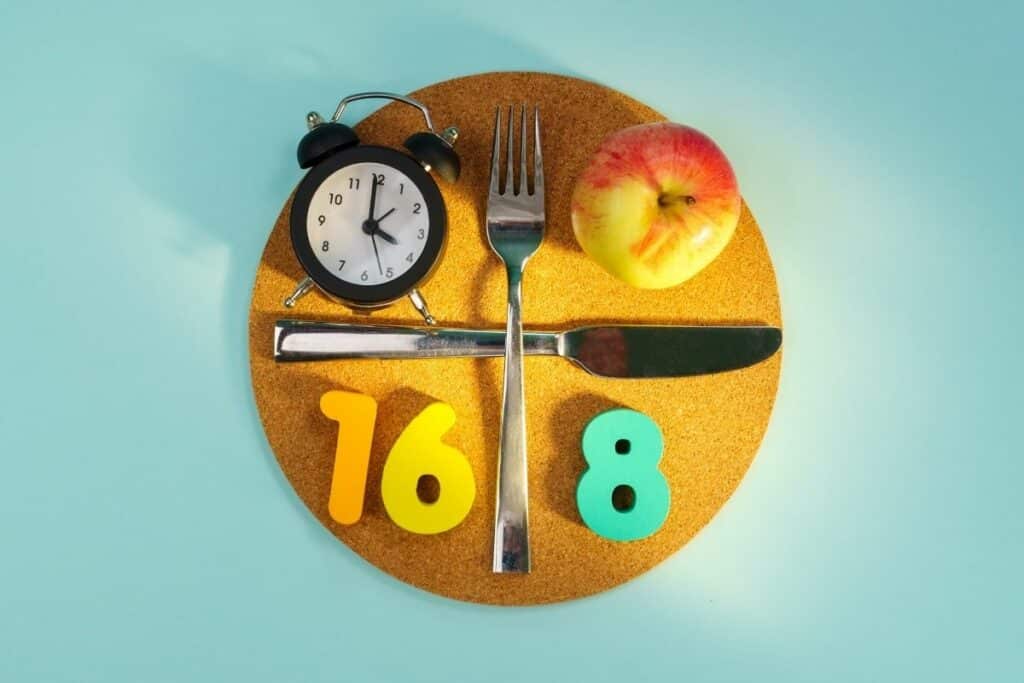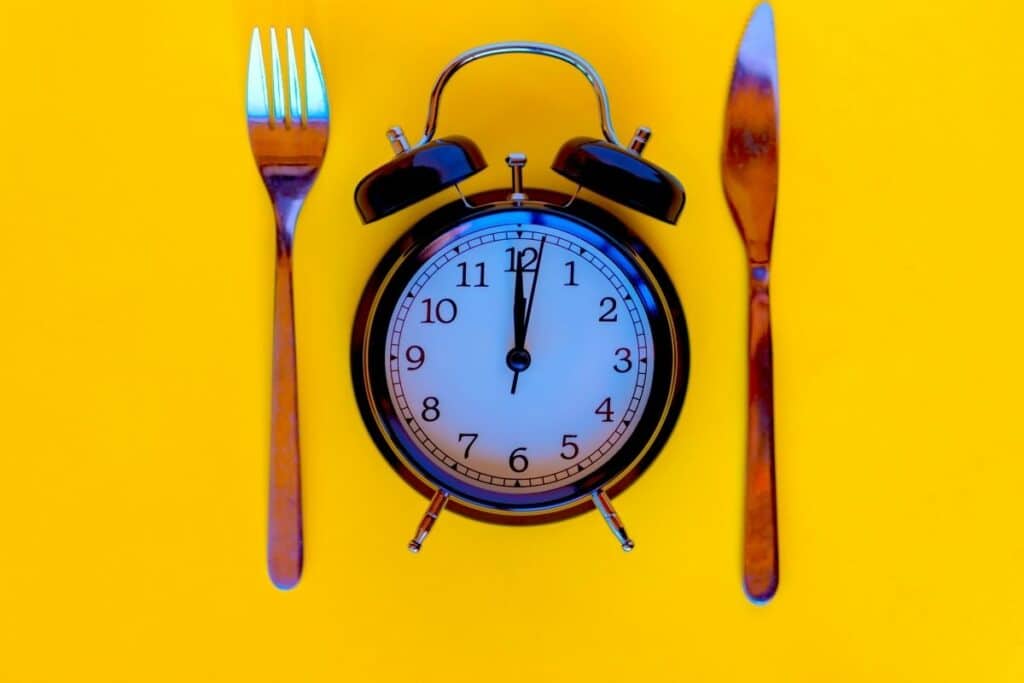Finding a sustainable approach to wellness is essential. Intermittent fasting has proven to be a valuable tool for regaining control of my eating habits and improving my relationship with food.
As a busy mom juggling work responsibilities and the demands of family life, maintaining a healthy lifestyle became increasingly challenging. Since the start of the COVID-19 pandemic, my job as a Pharmacovigilance Analyst shifted to full time remote. For the most part, working from home has been a blessing but it also brought about a significant change in my daily routine.
Not only did my lifestyle instantly become much more sedentary, but the proximity of the kitchen made snacking an all-too-frequent activity.
What made me even more complacent was the fact that I have always been very slim. I didn’t have to watch what or how much I ate. I’ve never had to struggle to lose weight. But eventually, the sedentary lifestyle and undisciplined eating started to take its toll.
To be honest, I still didn’t gain much weight overall, but I did notice that unwanted weight gain around my waist. To make matters worse, I started feeling lethargic, and for some reason, my hormones seemed to be behaving differently.
All I knew is that I didn’t like it one bit. It was a wake up call to make a change for the better.
I needed to be disciplined. I had to be intentional.
But I really hated the idea of giving up certain foods entirely and I was struggling to stick to an exercise routine. I wanted something that works but that wasn’t going to be too stressful or demanding.
Luckily, my journey toward a healthier lifestyle took an unexpected turn when I decided to explore intermittent fasting.
I was actually writing an article for my blog concerning the benefits of breakfast when I stumbled upon an article about intermittent fasting.

Benefits of Intermittent Fasting
Despite my medical training and experience, I was still shocked to discover the numerous benefits.
Not only was intermittent fasting beneficial for reducing weight and belly fat, but it was also shown to improve metabolic health and increase lifespan. And, who wouldn’t love to live a few extra years right?
What I found even more enticing was the fact that intermittent fasting improves insulin sensitivity.
Let me share this statistic with you.
The fact that I’m black makes me twice as likely to develop diabetes than the average white person. Plus, my grandma has type 2 diabetes, my mom has diabetes, I have several other relatives with diabetes.
That’s a lot of family history which is another risk factor for diabetes. I’ve had hundreds and hundreds of patients who suffered and died due to complications of diabetes.
Plus, although there is a higher rate of diabetes in men than women, women – like me – are usually diagnosed earlier and have a higher risk of severe complications and death from diabetes than men.
So, I’m definitely trying my best to stop diabetes from happening to me. I know that I could still end up being diabetic but hey “God grant me the serenity to change the things that I can.”
Btw, if you know someone who is diabetic, consider gifting them my diabetes guide and log book. It includes tips for managing your diabetes and associated complications.
Plus I’ve added various logs and trackers – everything you need. It’s available on amazon. I’ll leave a link in the description.
Anyways, back to my intermittent fasting journey. All I needed to do was restrict my eating to certain time periods and then fast for the remaining hours in the day.
I didn’t need to restrict my calories. I didn’t need to eliminate certain foods. Just simply eat them all during a specific time period. I knew I could do that.
Plus I felt like I already had some experience since I would fast occasionally for religious purposes and I often skipped breakfast simply because I was too busy with work or my children.
But I must point out here that intermittent fasting isn’t randomly skipping meals which is actually not beneficial. I talk a little more about randomly skipping meals in this video.

So why exactly is intermittent fasting so beneficial?
One of the primary mechanisms behind the benefits of intermittent fasting is its ability to induce a state of ketosis. During ketosis the body burns fat for energy instead of glucose.
In addition to the benefits I mentioned earlier, this process can reduce blood pressure, reduce cholesterol levels and reduce the risk of cancer and Alzheimer’s.
Research has shown that intermittent fasting increases autophagy which is the body’s natural process of cleaning out damaged cells.
Autophagy is believed to play a key role in aging and disease prevention. So if you want to slow down aging and look younger – maybe intermittent fasting is the way to go.
However, factors such as the length of the fasting period, the timing of meals, and the types of foods consumed during eating periods can all impact the effectiveness of intermittent fasting.
Notably, your body can go into ketosis after about 12 hours. But usually for autophagy to happen you’ll likely need to fast for more than 16 hours.
So that’s why you’ll probably hear people referring to different types of intermittent fasting. It’s this flexibility that allows it to cater to your specific lifestyle.
You can do time-restricted eating (TRE), alternate-day fasting (ADF), and periodic fasting.
Actually, some people would fast for 3 to 5 days once or twice a year to essentially reset their immune system and improve their metabolism.
Personally, I’ve never fasted for so long. Maybe I’ll give it a try sometime. I do time restricted eating or the 16/8 plan.
So essentially I consume all my daily calories within an 8 hour window and I fast for the remaining 16 hours.
I have my first meal for the day after 12 pm, although now I find that I can easily go until 2 pm and I still don’t feel hungry.
Even if I do, it’s very mild and it doesn’t affect my mood or functioning in any way. Then I try to have my last meal by 8 pm.
The restricted eating window naturally reduced my calorie intake, allowing me to maintain and not increase my weight even though I was less active.
Surprisingly, I found that fasting periods were accompanied by increased mental clarity and sustained energy levels.
So I found that it actually improved my productivity. I felt less bloated and had less indigestion. And my sleep was better, because I wasn’t eating just before bed.
Plus, it simplified my meal planning process. Knowing that I had a designated eating window allowed me to focus on preparing nutrient-dense meals rather than constantly worrying about snacks.
Perhaps even more significant is the fact that intermittent fasting helped me to be more disciplined and intentional with my habits and lifestyle.
Let’s face it, I can’t be absolutely certain that all of the benefits I experienced are due to intermittent fasting only.
However, I’m truly grateful because intermittent fasting served as a catalyst for other lifestyle changes that I subsequently implemented.
I saw first-hand that small changes can be quite beneficial. For instance, now I can easily drink tea without sugar – although I previously found that so hard to do.
I no longer snack throughout the day. Actually right now I only eat twice daily, I eat lunch, immediately followed by a small snack and then I don’t eat again until dinner.
I started opting for healthy snacks and food alternatives. And it didn’t all feel overwhelming or sacrificial.
Read also: 21 Tips To Stay Motivated To Eating Healthy

Tips for Success with Intermittent Fasting
So, having done intermittent fasting for the last two years, here are some of my best tips:
- If you’re now starting out, consider doing less hours and gradually increasing. For instance, maybe you can start with 12 hours and then move to 13 hours or 14 hours. Having those small victories will keep you motivated.
- Be very intentional with your meals. Remember, it’s important not to consume too few calories and to not eliminate entire food groups since doing this may lead to other health issues. For instance, I previously ate fruits only in the morning. So, when I first started I realized that I had completely eliminated fruits and some other foods from my diet – which isn’t good either. Ideally, I need 5 servings of fruits and vegetables daily. So now, I’ve made it a ritual to eat some fruits just before lunch. This way I have reincorporated fruits back into my diet in a way that’s very habitual. Plus, this helps me decrease the amount of carbs I eat after fasting for so long.
- Don’t feel like a prisoner in your own body. Remember it’s about creating a lifestyle that works for you. If you’re going to be implementing something that will simply make you miserable. It’s probably not even going to be worth it. The stress will likely kill you out faster than the poor eating habits. So for the days that I’m simply unable to have my last meal before 8 pm. I refuse to feel bad about it.
- Generally, I don’t feel the need to have cheat days. Because I simply am not hungry in the mornings anymore. I do sometimes have hot tea only – so that’s the hot water and teabag -without sugar or milk.By doing this I’m still technically fasting since the tea itself doesn’t have calories that will increase your blood sugar levels. For those coffee lovers, if you must have your morning coffee, it’s best to keep it black without any added ingredients so that you don’t break the fast until you need to.
- Even though you do not need to decrease the total number of calories you eat per day to experience the benefits. Be careful not to overeat, as consuming too many calories during the eating window can negate the potential benefits of time-restricted eating.
- Getting enough sleep is very helpful. Not only will it eliminate most of your fasting hours but it’ll also regulate your hunger.
- Consistency is key when it comes to time-restricted eating. It’s important to stick to your chosen eating window as closely as possible. It may also be helpful to track your progress and adjust your eating window or nutrient intake as needed. This can help you stay motivated and ensure that you’re seeing the desired benefits of time-restricted eating.
- And finally, if you find that eating a healthy breakfast works great for you- then you don’t necessarily need to change that. Just perhaps try to stop eating a few hours before bed or perhaps push breakfast back by a few minutes or an hour. Whatever works best for you.
Read also: 4 Proven Steps To Stop Overeating That Work
Negative effects of Intermittent Fasting
Some individuals may experience hunger episodes, headaches, and fatigue. However, these side effects typically subside as the body adjusts to the new eating pattern. So that’s why it’s best to have your body adjust by gradually increasing the fasting hours.
Who Should Approach Intermittent Fasting with Caution
However, while intermittent fasting has been a positive experience for me, it’s crucial to note that it is not suitable for everyone. Individuals who should approach intermittent fasting with caution include:
Pregnant or Breastfeeding Women
For instance, the nutritional needs during pregnancy and breastfeeding are unique, and fasting will not provide adequate nourishment.
Individuals with Eating Disorders
Fasting may worsen unhealthy relationships with food if you have at history of eating disorders.
People with Certain Medical Conditions
Individuals who already have diabetes, heart conditions, or other chronic illnesses should seek guidance from a healthcare provider to ensure that intermittent fasting aligns with their health needs.
Children and Adolescents
Plus, although I try to drag my husband along on this journey, my children definitely are not doing intermittent fasting. Children and adolescents are growing and have different caloric needs.

Final Words on Intermittent Fasting
Finding a sustainable approach to wellness is essential, and intermittent fasting has proven to be a valuable tool for regaining control of my eating habits and improving my relationship with food.
It has truly been a transformative experience.
Read also: 16 Surprising Tips To Avoid Holiday Weight Gain
References
Patterson RE, Laughlin GA, LaCroix AZ, Hartman SJ, Natarajan L, Senger CM, Martínez ME, Villaseñor A, Sears DD, Marinac CR, Gallo LC. Intermittent Fasting and Human Metabolic Health. J Acad Nutr Diet. 2015 Aug;115(8):1203-12.
Song DK, Kim YW. Beneficial effects of intermittent fasting: a narrative review. J Yeungnam Med Sci. 2023 Jan;40(1):4-11.








